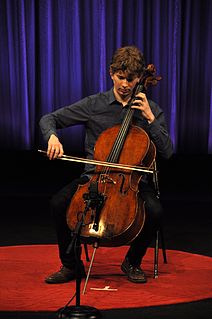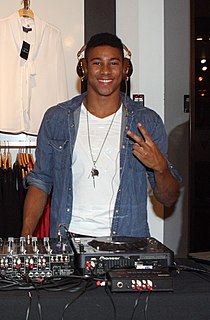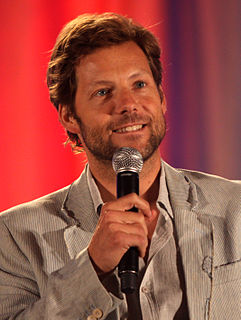A Quote by Sue Monk Kidd
Giving voice to marginalised characters is extremely important to me. I want to explore the pain of disenfranchisement, the social strata and boundaries we create and how to make them more permeable.
Related Quotes
What interests Sam Mendes are characters and relationships, and he was a genius at giving you the freedom to create the type of character you want, and also to explore and have fun with your fellow actors. For him, characters and relationships are really the heartbeat of the film, and then the action is the backdrop. By developing the characters, he makes you care that much more about the action and going on a journey with the characters.
We are all different human beings, and we all have different backgrounds, and we stem from different social strata. That is what defines how you hear people talk, how you want to quote them when you speak. We all have different fears and doubts and complexes and this is what shapes the way we see other people. Especially characters.
The struggle to create a nation and world of economic and social justice and environmental sanity is not an easy one. The struggle to try and create a more peaceful world will be extremely difficult. But this I know: despair is not an option if we care about our kids and grandchildren. Giving up is not an option if we want to prevent irreparable harm to our planet.
Everything has boundaries. the same holds true with thought. you shouldn't fear boundaries, but you also should not be afraid of destroying them. that's what is most important if you want to be free: respect for and exasperation with boundaries. what's really important in life is always the things that are secondary.
I'm naturally shy, so the social media thing is new to me. I haven't really figured out how my voice sounds on social media, you know? I don't want to tweet everyday just for the sake of tweeting. I want to make sure whatever I do there is honest. Social media can very quickly get fake, and I don't want to be that guy.
When I read to children, I try to become the characters. It's great if you can make a separate voice for each character. Sometimes you can lower your voice with excitement or get more intimate about it: you can lean forward and engage the children as a narrator or as a reader. It's particularly important that you find the voice that you want to use for each character, because then children can imagine that person as you're reading aloud. And of course, the illustrations help enormously.
I've never conceptualized much of what I write about. Maybe, once I'm onto something, I'll conceptualize a finished record. I want the songs to tie together and make sense together. I'm not like, "Oh, I want to explore this idea." That's just not how the creative process works for me. It's more like something strikes me, or finds me, and then I wrestle with it after that. I don't sit back in my armchair, like, "What kind of philosophy can I explore today?"





































